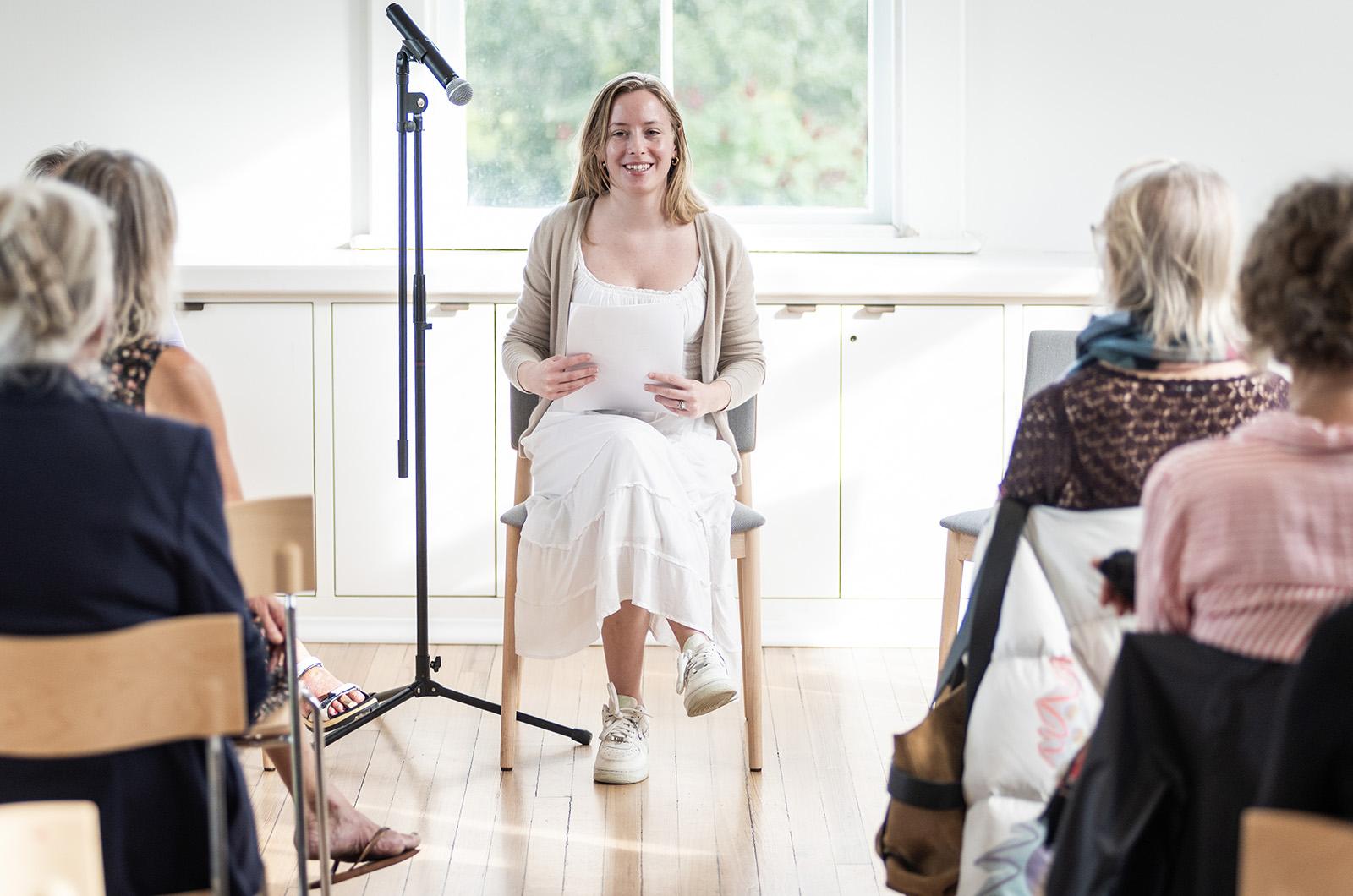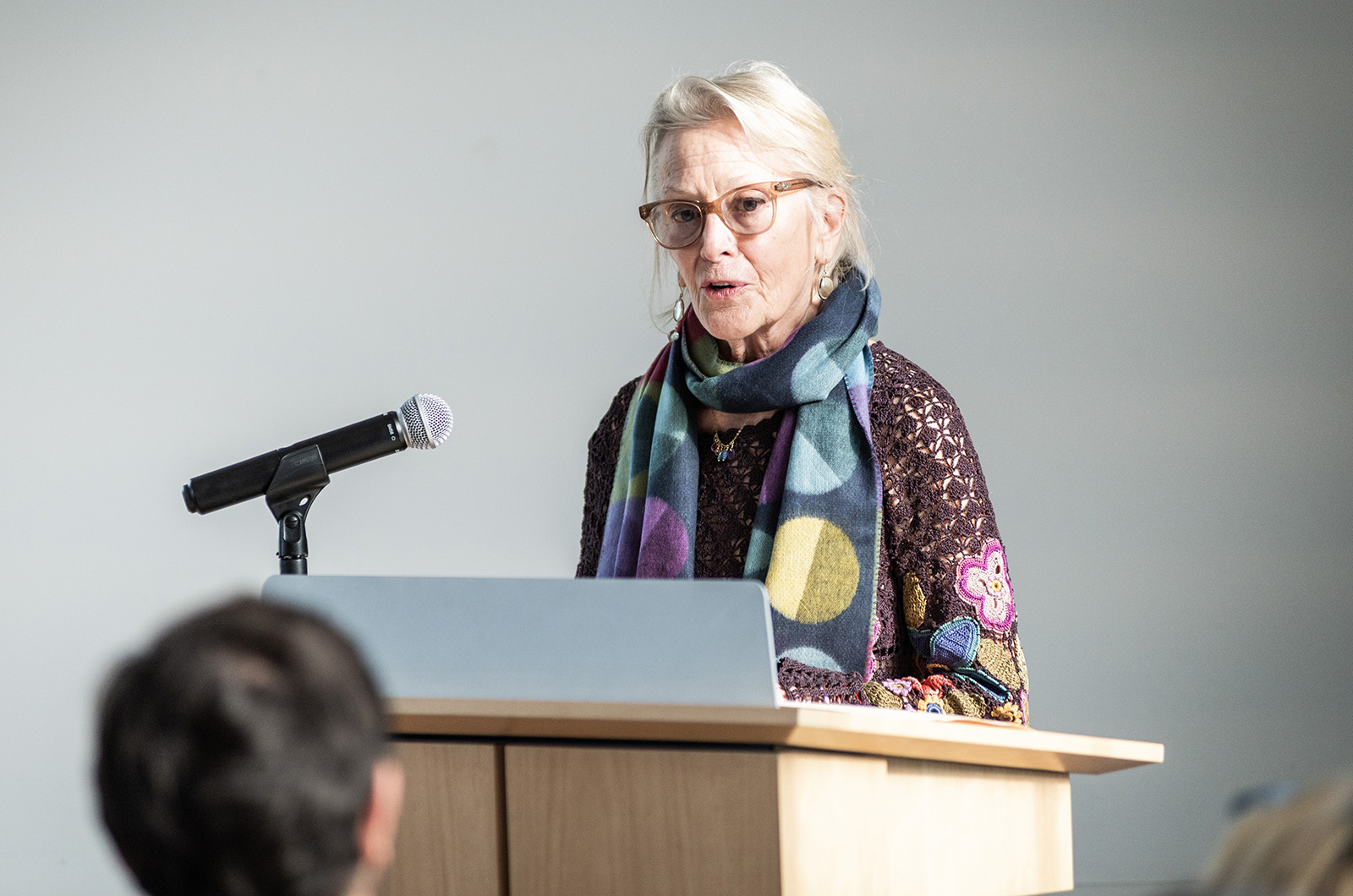Claudia Taylor’s voice echoed throughout the Martha’s Vineyard Museum on Friday for her first public reading as the Island’s new poet laureate.
Ms. Taylor was accompanied by poet and human rights activist Rose Styron, for whom a garden outside of the museum is named after, and Fan Ogilvie, who read from her book, Dust Is The Only Secret: Accent to Life.
Ms. Taylor grew up on the Vineyard and began writing poetry when she was 11 years old. She is the program director at the Edgartown Library and was named poet laureate of the Island in May.
On Friday, she opened with a poem she wrote while attending the Martha’s Vineyard Regional High School. Titled Grow, the poem describes a human embryo and follows it’s evolution to birth.
“You rehearse moving and breathing, blinking, seeing, hearing, touching,” Ms. Taylor read. “Nine months old, and you have already decided to move out.”
Ms. Taylor read three other poems: The Circle, describes the Earth, where heroes and goddesses once lived like mortals; The Center imagined everyone with a shard of lightning running down their core; and Nation and Narration compares feeling secure in a great love with feeling owned by one’s country.
Ms. Styron opened the event by reading a poem of her own called Ballad of Martha’s Vineyard. The crowd nodded as her words about the Island’s blue enameled skies resonated. She also spoke about her travels with Peter Matthiessen, a well known author and naturalist who died in 2014. Her poem Belize encapsulates one of the last trips the two took together and is featured in her new book titled Fierce Day.
“Poetry feeds us, even if we’ve put it on the shelf for awhile,” Ms. Styron said.
Ms. Styron introduced Ms. Ogilvie. The two women met decades ago in Washington D.C. when they were both members of the Folger Library Poetry Board.
Ms. Ogilvie’s poem, God’s nuts, is a note written by God to humans. She said she writes poetry to answer life’s questions.
“As you notice probably all your life and all your history, reading and everything, God doesn’t talk very much to us anymore,” Ms. Ogilvie said. “So if he doesn’t speak to you, you have to write what he might say to you.”
When the poets were asked by the audience about their process, Ms. Taylor said her poems begin with a seedling of an idea, and then develop by playing with structure, rhyme and rhythm. Ms. Styron said she keeps paper by her bedside and writes poetry first thing in the morning.
The evening concluded with a story from Ms. Styron about the first poem she ever wrote. She was eight years old and submitted 14 verses to her friend’s school magazine. Later, her fourth grade teacher called her up in front of the whole class and accused her of plagiarism. At the time, Ms. Styron didn’t know what the word plagiarism meant.
“I went home and I found out what plagiarism [was] and thought ‘she thinks somebody older than me wrote this and that I stole it from somebody else and put my name on it?’ Ms. Styron remembered. “‘Maybe I can grow up and be a poet.’”









Comments (1)
Comments
Comment policy »